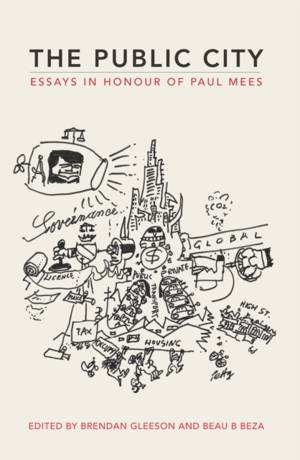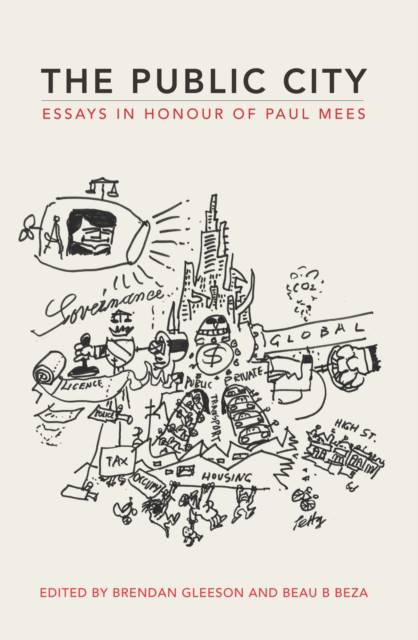
- Afhalen na 1 uur in een winkel met voorraad
- Gratis thuislevering in België vanaf € 30
- Ruim aanbod met 7 miljoen producten
- Afhalen na 1 uur in een winkel met voorraad
- Gratis thuislevering in België vanaf € 30
- Ruim aanbod met 7 miljoen producten
Zoeken
€ 82,95
+ 165 punten
Omschrijving
Paul Mees' urban ideal counted on watchful, confident and well-informed citizenry to work collectively in a quest for fair and just cities. As such, The Public City is largely a critique of neo-liberalism and its arguably negative influence on urban prospects. As Mees explained it, neo-liberal urbanism was much more than a political aberration; it was a threat that imposed many costly failures in an age overshadowed by grave ecological challenges.
Fifteen of Australia and New Zealand's leading urban scholars, including Professor Emeritus Jean Hillier and Professor Brendan Gleeson, have contributed to this collection.
The Public City includes a foreword by the late Professor Sir Peter Hall, a world leader in urban planning from Britain. Kenneth Davidson, one of Australia's top economic columnists, has also contributed a chapter. The collective works in this book extend beyond an analysis of urban patterns to provide a blueprint for the improvement of civic and institutional purpose in the creation of the public city.
Fifteen of Australia and New Zealand's leading urban scholars, including Professor Emeritus Jean Hillier and Professor Brendan Gleeson, have contributed to this collection.
The Public City includes a foreword by the late Professor Sir Peter Hall, a world leader in urban planning from Britain. Kenneth Davidson, one of Australia's top economic columnists, has also contributed a chapter. The collective works in this book extend beyond an analysis of urban patterns to provide a blueprint for the improvement of civic and institutional purpose in the creation of the public city.
Specificaties
Betrokkenen
- Auteur(s):
- Uitgeverij:
Inhoud
- Aantal bladzijden:
- 256
- Taal:
- Engels
Eigenschappen
- Productcode (EAN):
- 9780522867305
- Verschijningsdatum:
- 25/11/2014
- Uitvoering:
- Paperback
- Formaat:
- Trade paperback (VS)
- Afmetingen:
- 155 mm x 232 mm
- Gewicht:
- 403 g

Alleen bij Standaard Boekhandel
+ 165 punten op je klantenkaart van Standaard Boekhandel
Beoordelingen
We publiceren alleen reviews die voldoen aan de voorwaarden voor reviews. Bekijk onze voorwaarden voor reviews.











